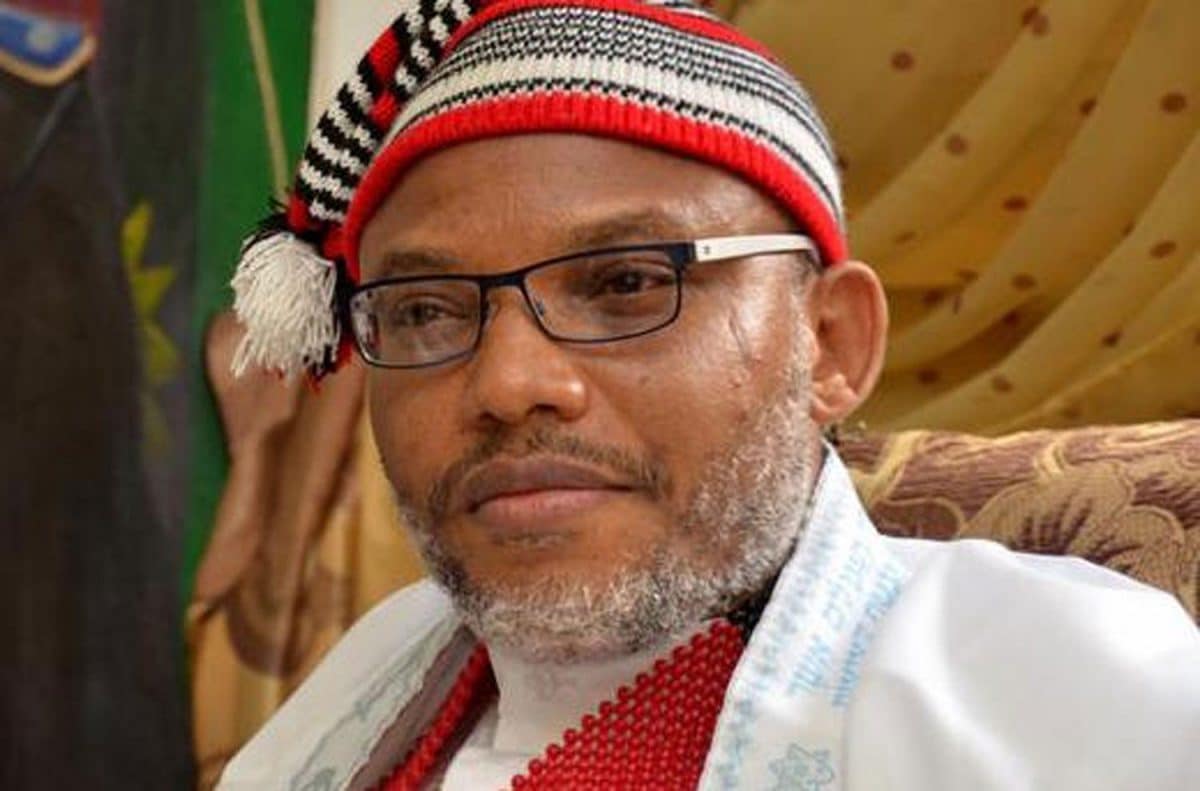Delta Federal Lawmaker Frowns on Conviction of Nnamdi Kanu, Calls for Political Solution
Advertisements
A member of the House of Representatives, Hon. Benedict Etanabene, representing Okpe, Sapele, and Uvwie Federal Constituency in Delta State, has criticized the conviction and life sentence handed to Nnamdi Kanu, the leader of the proscribed Indigenous People of Biafra (IPOB). The lawmaker stated that the judgment delivered by the Federal High Court in Abuja does not resolve the long-standing sociopolitical issues at the core of the South-East crisis.
Etanabene made the statement during a live interview on Arise News Prime Time, anchored by journalist Charles Aniagolu, where he analyzed the ruling and its wider national implications.
Ejes Gist Media reports that the legislator maintained that the Federal Government should have adopted a political solution, noting that similar approaches were used successfully in managing past security challenges involving Niger Delta militants.
Advertisements
“Political Approach Better Suited for Nnamdi Kanu Case”
Speaking during the Arise TV interview, Etanabene argued that the conviction of Kanu overlooks the underlying issues that have fueled separatist sentiments in the South-East for years. He stated that the government previously applied non-military negotiation frameworks in the Niger Delta, which contributed significantly to the de-escalation of militancy and the creation of conditions for peace.
The lawmaker suggested that rather than intensifying legal and security pressures, an administrative, diplomatic, and dialogue-based approach would have been more effective in addressing the agitation and its root causes. He noted that the lasting success of the Niger Delta amnesty process demonstrated that political grievances are best resolved through inclusion and structured negotiations.
Advertisements
According to Etanabene, the conviction of Kanu risks deepening mistrust between communities and the central government, adding that political and civic grievances require responses that are broader than courtroom rulings.
“Judgment Exposes Larger Issues”
Etanabene told the programme that the court ruling has raised several concerns regarding Nigeria’s approach to internal political disagreements and separatist movements. He questioned the broader context in which such prosecutions take place and argued that the national discussion has often focused on Kanu’s statements rather than the content and implications of the security concerns he highlighted.
He referenced statements attributed to Kanu in which the IPOB leader allegedly advised communities to protect themselves from armed groups infiltrating Nigerian territories from Cameroon, Chad, and Niger. Etanabene argued that such issues deserve deeper policy investigation and national attention, especially where there are claims of cross-border security threats.
The lawmaker also stated during the interview that economic exclusion, political marginalization, and regional underdevelopment remain significant drivers of discontent in many regions of Nigeria. He noted that addressing these concerns directly could contribute more meaningfully to lasting peace and national unity than prolonged legal battles.
Questions Over Uneven Security Approaches
During the interview, Etanabene highlighted a perceived inconsistency in national security responses, noting that several northern political figures and military officers have publicly held dialogue sessions with armed groups in the North during attempts to curb banditry. He contrasted this with the handling of IPOB and its leadership, expressing concern that different groups appear to receive different levels of engagement and dialogue.
Analysts observing recent developments have pointed out that successful conflict resolution in different regions of the country has often involved a combination of negotiation, community engagement, and security reforms, rather than exclusive reliance on legal or military measures.
Advocacy groups monitoring Nigeria’s internal security landscape have frequently recommended broader adoption of political frameworks to reduce reliance on force and legal prosecutions in dealing with domestic armed or separatist movements.
Focus on Potential Outcomes of the Conviction
Policy experts monitoring the situation note that the conviction of Kanu could have several implications for Nigeria’s political climate, internal security, and dialogue frameworks. Areas highlighted by analysts include:
- Growing distrust between citizens and the federal government in affected regions
- Possible escalation of protests or civil resistance
- Reduced likelihood of negotiated peace within the short term
- Strengthening of hardline positions on all sides
- Increased international attention and monitoring
Observers also note that the ongoing legal process and subsequent appeals may influence future national strategies in managing high-profile dissident cases.
Historical Use of Political Settlements in Nigeria
Nigeria’s political history reflects multiple examples where security crises were reduced through systemic political negotiations. The Niger Delta amnesty programme, which was launched during the President Umar Musa Yar’Adua administration, remains one of the most cited case studies.
The initiative included:
- Disarmament
- Rehabilitation programs
- Industrial and community development initiatives
- Conditional reintegration
Security experts credited the programme with reducing attacks on critical oil infrastructure and restoring relative calm to the region. Etanabene pointed out that the same template could have been adapted to address the South-East situation if the government had prioritized dialogue and reintegration over prosecution.
Growing National Debate
The conviction of Nnamdi Kanu has continued to generate debate within political, legal, diplomatic, and civil society circles. Analysts note that many Nigerians are now openly asking whether judicial processes are sufficient to resolve regional grievances rooted in decades-long complaints of political exclusion, inadequate federal presence, and perceived inequities in national resource distribution.
Security analysts also stress that conflicts linked to identity and political self-determination tend to resist solely force-based solutions. They argue that countries with similar historical tensions have often resorted to multi-dimensional frameworks including power-sharing reform, autonomy debates, legislative responses, and peacebuilding initiatives.
Background
Nnamdi Kanu, leader of IPOB, has faced legal challenges since the group was proscribed under Nigerian law. The Federal High Court in Abuja recently convicted him on terrorism-related charges, leading to a life sentence. Security agencies allege that IPOB has been linked to attacks and armed activities in parts of the South-East, allegations which the group has repeatedly denied.

